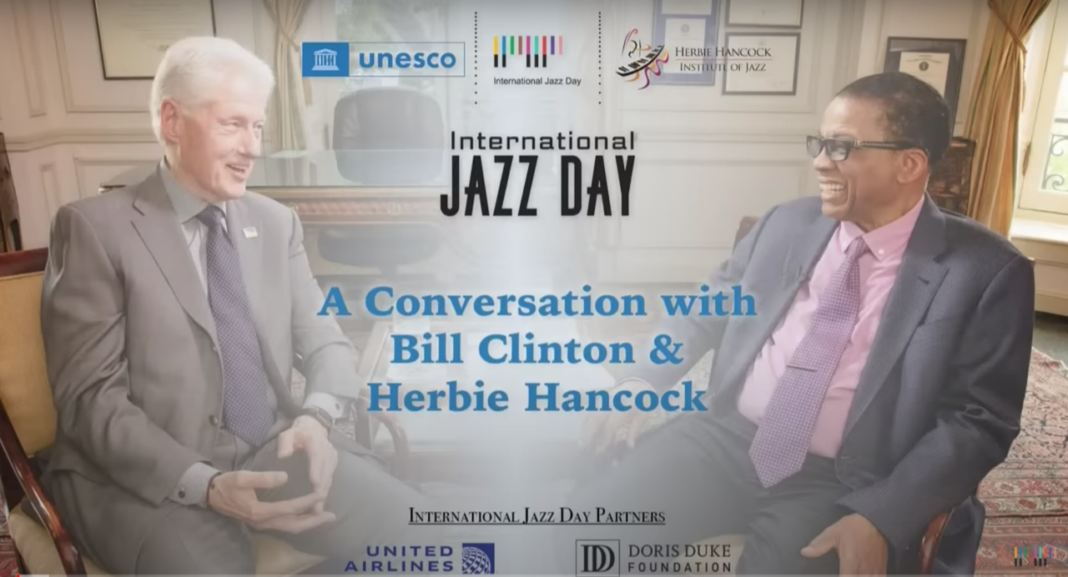In April, an extraordinary meeting of the minds took place as jazz icon Herbie Hancock and Bill Clinton, 43rd President of the United States (1993-2001), engaged in a captivating dialogue on the rich and timeless art form of jazz.
Mr. Hancock, renowned pianist, composer, ICAP president, and UNESCO Goodwill Ambassador for Intercultural Dialogue, sat down with President Clinton for a thought-provoking discussion on the significance of jazz as a symbol of unity and its enduring impact on society.
The event was organized to celebrate International Jazz Day, an initiative personally spearheaded by Mr. Hancock, which is commemorated each April 30.
The dialogue delved into the historical roots of jazz and its ability to transcend boundaries, both musical and social. Mr. Hancock emphasized how jazz has always been a metaphor for democracy, emphasizing the importance of collaboration, improvisation, and individual expression within the context of a collective performance.
President Clinton, known for his deep appreciation of jazz, shared personal anecdotes about the influence of jazz music on his life and presidency, and recounted how the genre had played an essential role in shaping his worldview. He highlighted the power of jazz in fostering cultural understanding and promoting social change and spoke passionately about the unifying power of jazz, describing it as a language that transcends words, cultures, and even political differences.
The conversation also touched on the role of education in preserving and promoting jazz. Both men stressed the need for continued support and investment in music education to nurture the next generation of jazz artists and ensure the genre’s legacy endures.
In all, the dialogue served as a testament to the enduring relevance of jazz in an ever-changing world, reminding us of its power to unite, inspire, and ignite positive change.
You can watch this engaging conversation on YouTube by clicking here.
The dialogue highlighted the rich history of jazz as a form of expression and resistance, tracing its roots back to African American communities and its ability to transcend boundaries. Jazz, they agreed, has become a symbol of freedom and democracy, resonating with individuals from all walks of life, and providing an enduring source of enriching our collective human experience.

